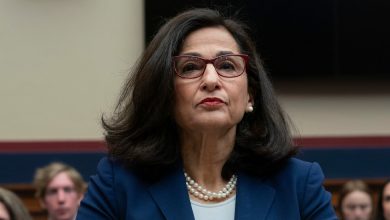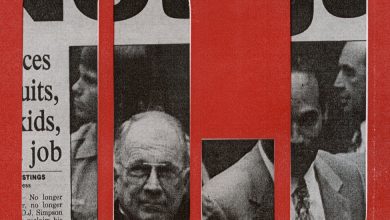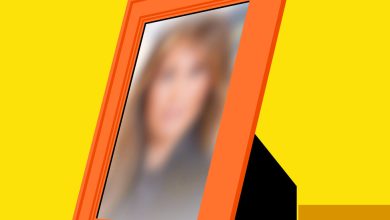Dave Chappelle’s Brittle Ego

We generally have the same debates about comedy over and over. Let’s address those upfront: Art should be made without restriction. Free speech reigns supreme. Sometimes good art should make us uncomfortable, and sometimes bad people can make good art. Comedians, in particular, are going to punch up and down and side-to-side.
Also true: Comedy is not above criticism, even if the most famous, wildly wealthy comedians will keep insulting those who question them. It’s just laughs, right? Lighten up. All criticism is forestalled with this setup, in which when you object to anything a comedian says, you’re the problem. You’re the one who’s narrow-minded or “brittle” or humorless.
“Shut up,” Dave Chappelle recalls telling a woman who had the gall to challenge his comedy, using a sexist slur and laughing at how witty he is, as if he’s the first man to ever deliver such an original, funny line. “Before I kill you and put you in the trunk. Ain’t nobody around here.” The audience cheers, before Mr. Chappelle explains that he didn’t in fact threaten the woman: “I felt that way, but that’s not what I said. I was more clever than that.”
Mr. Chappelle spends much of “The Closer,” his latest comedy special for Netflix, cleverly deflecting criticism. The set is a 72-minute display of the comedian’s own brittleness. The self-proclaimed “GOAT” (greatest of all time) of stand-up delivers five or six lucid moments of brilliance, surrounded by a joyless tirade of incoherent and seething rage, misogyny, homophobia and transphobia.
If there is brilliance in “The Closer,” it’s that Mr. Chappelle makes obvious but elegant rhetorical moves that frame any objections to his work as unreasonable. He’s just being “brutally honest.” He’s just saying the quiet part out loud. He’s just stating “facts.” He’s just making us think. But when an entire comedy set is designed as a series of strategic moves to say whatever you want and insulate yourself from valid criticism, I’m not sure you’re really making comedy.
Throughout the special, Mr. Chappelle is singularly fixated on the L.G.B.T.Q. community, as he has been in recent years. He reaches for every low-hanging piece of fruit and sups on it gratuitously. Many of Mr. Chappelle’s rants are extraordinarily dated, the kind of comedy you might expect from a conservative boomer, agog at the idea of homosexuality. At times, his voice lowers to a hoarse whisper, preparing us for a grand stroke of wisdom — but it never comes. Every once in a while, he remarks that oh boy, he’s in trouble now, like a mischievous little boy who just can’t help himself.
Somewhere, buried in the nonsense, is an interesting and accurate observation about the white gay community conveniently being able to claim whiteness at will. There’s a compelling observation about the relatively significant progress the L.G.B.T.Q. community has made, while progress toward racial equity has been much slower. But in these formulations, there are no gay Black people. Mr. Chappelle pits people from different marginalized groups against one another, callously suggesting that trans people are performing the gender equivalent of blackface.
In the next breath, Mr. Chappelle says something about how a Black gay person would never exhibit the behaviors to which he objects, an assertion many would dispute. The poet Saeed Jones, for example, wrote in GQ that watching “The Closer” felt like a betrayal: “I felt like I’d just been stabbed by someone I once admired and now he was demanding that I stop bleeding.”
Later in the show, Mr. Chappelle offers rambling thoughts on feminism using a Webster’s Dictionary definition, further exemplifying how limited his reading is. He makes a tired, tired joke about how he thought “feminist” meant “frumpy dyke” — and hey, I get it. If I were on his radar, he would consider me a frumpy dyke, or worse. (Some may consider that estimation accurate. Fortunately my wife doesn’t.) Then in another of those rare moments of lucidity, Mr. Chappelle talks about mainstream feminism’s historical racism. Just when you’re thinking he is going to right the ship, he goes off the rails again, ranting incoherently about #MeToo. I couldn’t tell you what his point was there.
This is a faded simulacrum of the once-great comedian, who now uses his significant platform to air grievances against the great many people he holds in contempt, while deftly avoiding any accountability. If we don’t like his routine, we are the problem, not him.
This toxic performance crescendos when Mr. Chappelle shares a heartbreaking story about his trans friend Daphne Dorman, a comedian, who died by suicide — suggesting that if she was fine with his comedy, how dare anyone else have a problem? The story is bittersweet and sometimes funny, and then it is tragic, and the worst part is that Mr. Chappelle is clearly so very pleased with himself when he gets to the punchline. He thinks he has won an argument when really, he is exploiting the death of a friend. For comedy. Of course, we don’t know Ms. Dorman at all; pushing back against his portrayal twists us in an impossible bind. Once more, Mr. Chappelle forestalls any resistance.
One of the strangest but most telling moments in “The Closer”is when Mr. Chappelle defends DaBaby, a rapper in the news for making pretty egregious homophobic remarks, and his fellow comedian Kevin Hart, who once lost an Oscars hosting gig for … making homophobic remarks. Both men faced professional consequences for their missteps, but neither was canceled: Mr. Hart remains one of the highest-paid comedians in the world. DaBaby has more than 43 million monthly listeners on Spotify.
At the end of his special, Mr. Chappelle admonishes the L.G.B.T.Q. community one last time, imploring that we leave his “people” alone. If it wasn’t clear from his words, the snapshots of him with his famous pals in the closing credits of “The Closer” make it abundantly clear that Dave Chappelle’s people aren’t men or women or Black people. His people are wealthy celebrities, and he resents even the possibility of them facing consequences for their actions.
Roxane Gay, a contributing Opinion writer, is the editor of “The Selected Works of Audre Lorde” and the author of the memoir “Hunger,” among other books.
The Times is committed to publishing a diversity of letters to the editor. We’d like to hear what you think about this or any of our articles. Here are some tips. And here’s our email: [email protected].
Follow The New York Times Opinion section on Facebook, Twitter (@NYTopinion) and Instagram.




